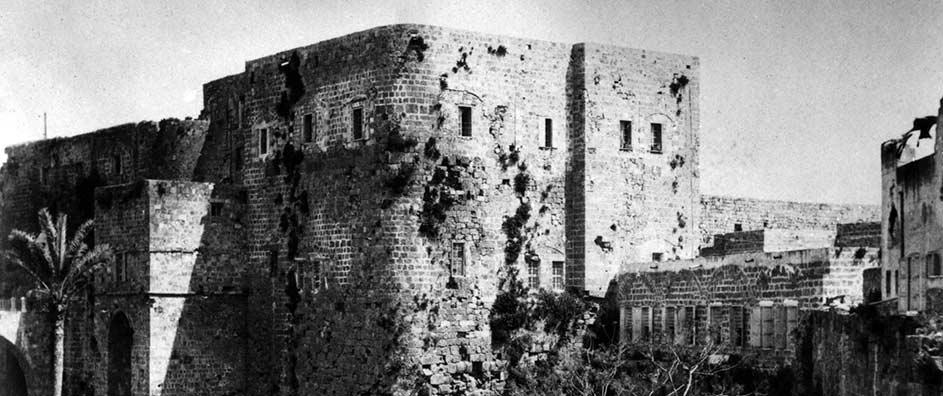The notion of imprisonment evokes stark imagery and profound emotional resonance. For many, it symbolizes restriction, loss, and despair, yet within the context of profound spiritual narratives, it can also illustrate a paradoxical profundity—an illumination of the human spirit’s indomitable tenacity. Within the Bahá’í teachings, the life of Bahá’u’lláh, the founder of the Bahá’í Faith, epitomizes this very duality. His incarceration—far from stifling the essence of his message—illuminated the depths of his spiritual insights, yielding a river of writings that continue to nourish seekers of truth.
First and foremost, it is essential to comprehend the context of Bahá’u’lláh’s imprisonment. In a world where political and religious upheaval conspired to extinguish voices of enlightenment, Bahá’u’lláh was subjected to unjust confinement in Akka, a fortress prison in the Ottoman Empire. Yet, the very surroundings that sought to suppress him became a crucible for his revolutionary teachings. This peculiar dynamism—a convergence of despair and creativity—reveals a unique aspect of the Bahá’í teachings: the transformative power of adversity.
The writings produced during this tumultuous period illuminate a profound metaphor—the ‘Most Great Prison.’ Rather than serving as a physical barrier, it symbolized the inner constraints of societies trapped in ignorance and division. It was from within these stone walls that Bahá’u’lláh articulated concepts destined to transcend time and geography, bridging diverse cultures and ideologies. The notion of “prison” thus metamorphoses from a mere confinement to a philosophical exploration of the barriers that impede humanity’s collective progress.
Indeed, the richness of Bahá’u’lláh’s writings emerges as a testament to the idea that true freedom is an internal state, independent of external circumstances. In this light, one’s spiritual liberation often requires confronting the barriers that externalize despair; it becomes an act of defiance against the limitations imposed by both society and the self. Each sentence, meticulously crafted, speaks to the resilience of the human spirit and an unwavering commitment to love and unity—a focal point of Bahá’í thought.
One remarkable aspect of Bahá’u’lláh’s writings is the lyrical quality that weaves through the prose. His striking metaphors invoke vivid imagery that resonates deeply within the hearts of readers. For instance, he spoke of the soul as a ‘lost pearl,’ highlighting the inherent value within each individual while concurrently illuminating the journey toward self-discovery and enlightenment. Thus, through the lens of imprisonment, Bahá’u’lláh highlights the transformative potential of introspection and wholesome engagement with one’s spiritual essence.
Moreover, the breadth and diversity of the teachings manifest the intricacies of the human experience. Bahá’u’lláh did not limit his writings to a mere catalog of spiritual ideals; he intermingled practical guidance with profound esoteric wisdom. Topics ranging from the importance of justice and equality to the necessity of consultation illustrate a holistic approach to spirituality that addresses both individual and communal growth.
This intertwining of the personal with the collective fosters an environment where teachings are not merely theoretical constructs but actionable principles that galvanize transformative change. The challenge presented by external hardships transformed into a wellspring of insights, culminating in a tapestry of teachings that resonate with individuals from various backgrounds, inspiring them to surmount their own ‘prisons.’
A particularly poignant dimension of Bahá’u’lláh’s writings is his unwavering emphasis on unity. In the face of division—a theme starkly reflected in his own experiences—he championed the concept that humanity is a single, interconnected entity. His eloquent declarations extol the virtues of love and acceptance, which serve as antidotes to the societal rifts that often lead to oppression. The poignant juxtaposition between his own experiences of confinement and his advocacy for universal brotherhood underscores a profound irony: it is often within the depths of adversity that the clarion call for unity resonates most powerfully.
Furthermore, the elegance of Bahá’u’lláh’s language does not simply aim to convey wisdom; it invites readers into an immersive experience. Each phrase is imbued with meaning, necessitating reflection and contemplation. This depth engenders what can be considered a spiritual dialogue—a conversation that transcends time, engaging readers across centuries. The metaphor of a drowning man grasping for a life preserver is fitting here; the wisdom offered serves as that life preserver, meticulously crafted to guide seekers toward a deeper understanding of themselves and their place in the universe.
In essence, the teachings of Bahá’u’lláh, birthed from the crucible of imprisonment, resonate with an unwavering truth: adversity, while daunting, becomes a catalyst for profound personal and communal awakening. The eternal relevance of his words encourages individuals to reflect upon their own constraining circumstances, urging them to transcend limitations, embrace unity, and foster a culture of love and acceptance. For those who dare to explore the depths of these writings, each reading becomes a pilgrimage toward enlightenment—an invitation to navigate the complexities of the soul and emerge renewed.
Ultimately, the paradox of Bahá’u’lláh’s experiences culminates in a universal lesson that echoes through the ages: true liberation is not merely the absence of physical constraints, but the ascendance of spirit and the realization of interconnectedness. In the abyss of despair, the light of hope gleams brightly, illuminating paths previously obscured, inspiring generations to come. This profound metaphor of transformation serves not only as the essence of his teachings but also as the guiding principle for humanity’s collective journey toward unity and understanding.
